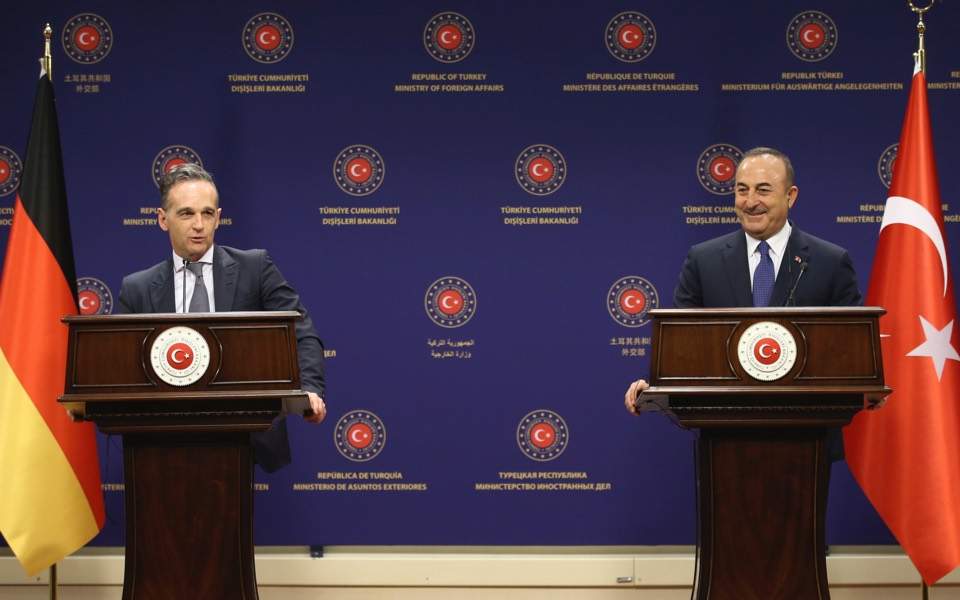The silence of German Foreign Minister Haiko Maas showed in the joint press conference with his Turkish counterpart when the latter made new provocative statements against Greece shows that Turkey seems to be attempting to coddle up to Berlin.
Berlin’s stance on a number of issues concerning Greek-Turkish raises questions.
An article by the Süddeutsche Zeitung that occasionally echoes Berlin’s positions is critical of the extension of Greek territorial waters in the Ionian Sea to 12 nautical miles.
Among other things, the article said that the move violates previous agreements and that it could “further anger Turkey.”
This fact, in combination with the silence of the German Foreign Minister in front of his Turkish counterpart Mevlüt Çavuşoğlu, raises the question of whether Germany disputes Greek sovereign rights.

The Greek Foreign Minister, responding – through his representative – to a question by Sputnik Hellas on the issue, stated that Germany has not expressed reservations regarding the expansion of territorial waters in the Ionian Sea.
“In any case, the inalienable sovereign right of our country on the basis of international law remains. Germany has done the same with its own waters, so it would be particularly impressive if it expressed any reaction or dissatisfaction,” said the represenative.
Why did Maas not react to Çavuşoğlu’s statements
For his part, the Turkish Foreign Minister made “incendiary” statements against Greece, to which Maas did not react, although he was on the same panel with him:
“Unfortunately, Greece continues its provocations, takes steps that violate the demilitarization regime of the islands, constantly conducts military exercises, NAVTEX announces without doing anything there,” Çavuşoğlu said.
“We also saw the statements of the Archbishop. We know the purpose of these moves,” he continued.
“They want to provoke Turkey, to take similar steps, and they will say to Europe, ‘Look, Turkey is continuing its negative steps,’ and they will ask for sanctions,” Çavuşoğlu added.
One of the reasons for Maas’ inaction is that his country is practically afraid of Turkey, said Costas Yfantis, a professor of International Relations at Panteion University.
“Germany still keeps a low profile in Greek-Turkish issues, and especially towards Turkey. This is on the one hand, because the Germans do not know how to react to Turkey and are afraid of their reactions,” the professor explained.
“On the other hand, Germany wants to maintain a channel of communication with the Turks because of their developed economic relations,” Yfantis added.
It is noted that Turkey and Germany have strong economic ties, while about 4 million Turks now live in the European country. Some of them are descendants of the first Turkish immigrants of previous decades while others are German citizens.


